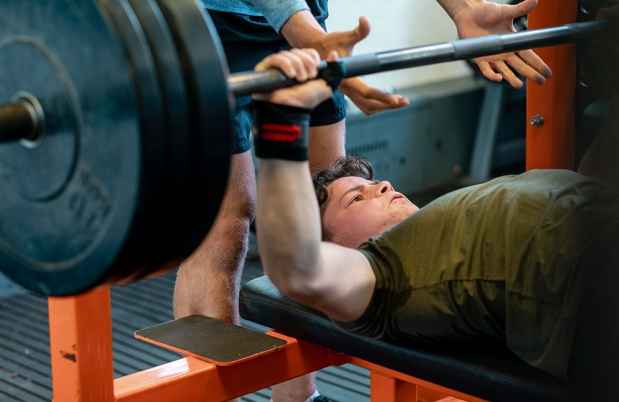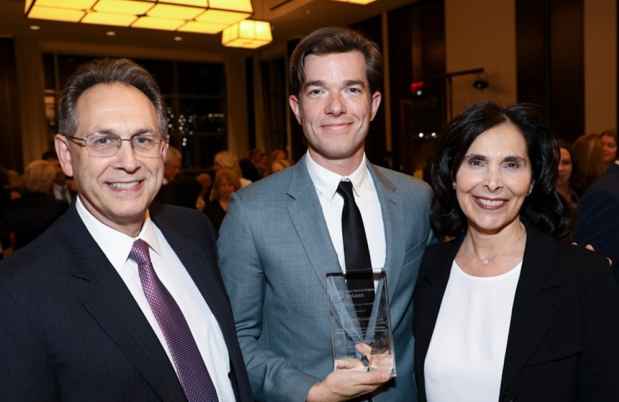A team from McLean Hospital won this year’s Partners Connected Health Innovation Challenge (CHIC) for a proposal to create a digital platform that brings integrated group therapy (IGT) to individuals with co-occurring mood disorders and addiction to drugs or alcohol.
The team, which competed against more than 50 other submissions, will receive 200 hours of service from the Partners Connected Health Innovation team to help with design, software development, and research, along with 100 hours from ObjectFrontier Software to produce the working digital platform.
According to Cheryl Cronin, MBA, MA, business manager at McLean Hospital’s Fernside Signature Addiction Recovery Program, the digital platform, called Integrated Support Now, could bring IGT to millions of individuals who may not be receiving the help they need.
“There are about 3.3 million people with co-occurring mood and substance use disorders in the United States alone,” she reported. “We are very thankful that we won the competition, because we know IGT works, and this app could help this huge population of people get access to treatment that can help them.”
The proposed app will incorporate key elements of IGT, an evidence-based approach for addressing coexisting bipolar disorder and alcohol and drug abuse that teaches recovery behaviors and relapse prevention skills.
Roger D. Weiss, MD, chief of the Division of Alcohol, Drugs, and Addiction and director of the Alcohol, Drug, and Addiction Clinical Research Program at McLean, explained that “IGT was created as a face-to-face form of group therapy, and much of the therapeutic value of IGT comes from interpersonal support.”
With this in mind, Weiss—who was one of the original developers of IGT—said, “the biggest challenge in creating the mobile app will be in translating the in-person interactions that are central to IGT to a digital platform.”
To address this issue, app users will take part in a daily check-in during which they respond to questions concerning their use of alcohol or drugs, their mood, and whether they had faced high-risk situations. App users will also be able to interact with a digital coach, which could suggest activities and options to help manage conditions.
In addition, the app will offer customized recommendations based on the IGT curriculum and collect information from users to help make better recommendations. In the future, Cronin said, the app could facilitate “group interaction, allow people to input emergency contacts, and offer crisis services.”

Anna Munro, LICSW, clinical team manager at Fernside, added that she has had success using apps as an adjunct to clinical care with her patients with substance use and mood disorders.
“These days, people are attached to their phones, and apps can give people reminders, help them get organized, and move forward with their treatment plans,” she said. Some apps, she added, allow individuals to communicate quickly and securely with clinicians and with others who are dealing with similar health issues, and a patient’s ability to track cravings and monitor moods through mobile apps has been helpful in supporting their recovery.
Dawn E. Sugarman, PhD, a clinical psychologist in McLean’s Division of Alcohol, Drugs, and Addiction, said that the proposed IGT app would be the first of its kind to help people with substance use and mood disorders. “There are some web-based programs for co-occurring mood and substance use disorders, but there are currently no mobile apps for this population,” she said.
In addition to being the only app to help this group of patients, the IGT app would offer individuals more complete treatment than they may currently be receiving. Sugarman explained that many substance use treatment programs “are not designed to address co-occurring mood disorders; therefore, patients often only get half of treatment that they need.”
At McLean, the need for an IGT-based app has been discussed for some time, but it took the opportunity to take part in the challenge to move the idea from discussion to action. Cronin said that the IGT-based app had been proposed long ago by Kenneth Gilman, Fernside’s residential supervisor.
The challenge’s focus on using technology to produce patient-centered health solutions spurred Cronin and her colleagues to assemble a team of experts from around the hospital and get to work creating a proposal.
The group is named “Team No Matter What,” after one of the central concepts of IGT: “No matter what, don’t drink, don’t use drugs, take your medication as prescribed, no matter what!”
In addition to Cronin, Gilman, Sugarman, Munro, and Weiss, the team includes Hilary S. Connery, MD, PhD, clinical director, Division of Alcohol, Drugs, and Addiction; Rocco A. Iannucci, MD, director, Fernside; and Monika E. Kolodziej, PhD, director of Psychological Services, Fernside.
The team cited Kolodziej’s presentation to CHIC’s review panel as being instrumental to the project’s success in the competition.
According to Weiss, developing the IGT-based app is in keeping with McLean’s commitment to finding innovative ways to bring effective treatments for substance use disorders and other mental illnesses to more and more people.
“IGT is a treatment that we know is effective and we all believe in,” he said. “The translation of IGT into a mobile app will help us take the next step in opening up this treatment to people who can’t come to McLean.”
Media Requests
Journalist or member of the media? We are available 24/7 for media requests.



